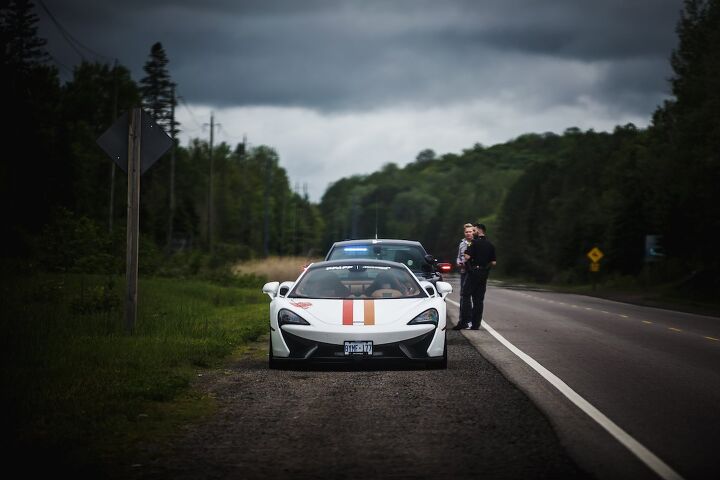#570gt
Fire Risk Prompts McLaren Recall
McLaren is recalling 2,763 vehicles built between 2016 and 2020. Considering the ultra-premium auto brand rarely moves more then 4,000 units a year (a tally it hopes to ramp up to 6,000 by 2025), its a sizable recall. Affected models include the $1-million Senna, 570GT, GT, and 720S.
As if hearkening back to the supercars of yore, the issue poses a potential fire hazard.
Fast Cars, Fooling Around, and Formula 1 in Montreal
With contributions by Sebastien Bell and Sam McEachern
Mechanics have made their last-minute checks, drivers circulate sur la piste managing tire and brake temperatures, engineers confirm strategies; cars stage on the starting grid, the dissonant cacophony of twenty 1.6-liter V6 hybrid Formula 1 engines spooling reverberates through the grandstands as five red lights illuminate sequentially…
Hosted on Montreal’s Île Notre-Dame since 1978, the Grand Prix Du Canada has always been a special place for the Formula 1 paddock. For decades, drivers have loved the city’s vibrating atmosphere and unbridled passion for the sport, but what they really love is the circuit’s proximity to a devilish downtown core drowning in alcohol and impeccably dressed women.
Why do you think we like it?
McLaren Says It Won't Build a Four-door or SUV, but It Might Make a Stupid 2+2
Here is sentence that nobody has ever uttered: “Honey, you have to take the kids to school in the McLaren today because the Kia is in the shop and it’s our only other mode of transportation.”
Despite this, the automaker that has continuously brought the world road-going hypercars and track day darlings has also considered building a car with a backseat for quite some time. While most supercar manufacturers have at least mulled over something for the entire family, McLaren seems among the worst-suited for the task.


















Recent Comments